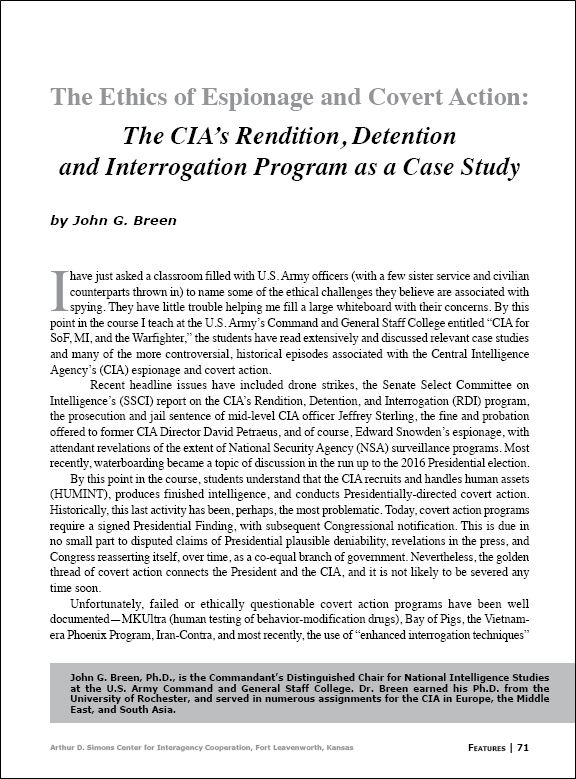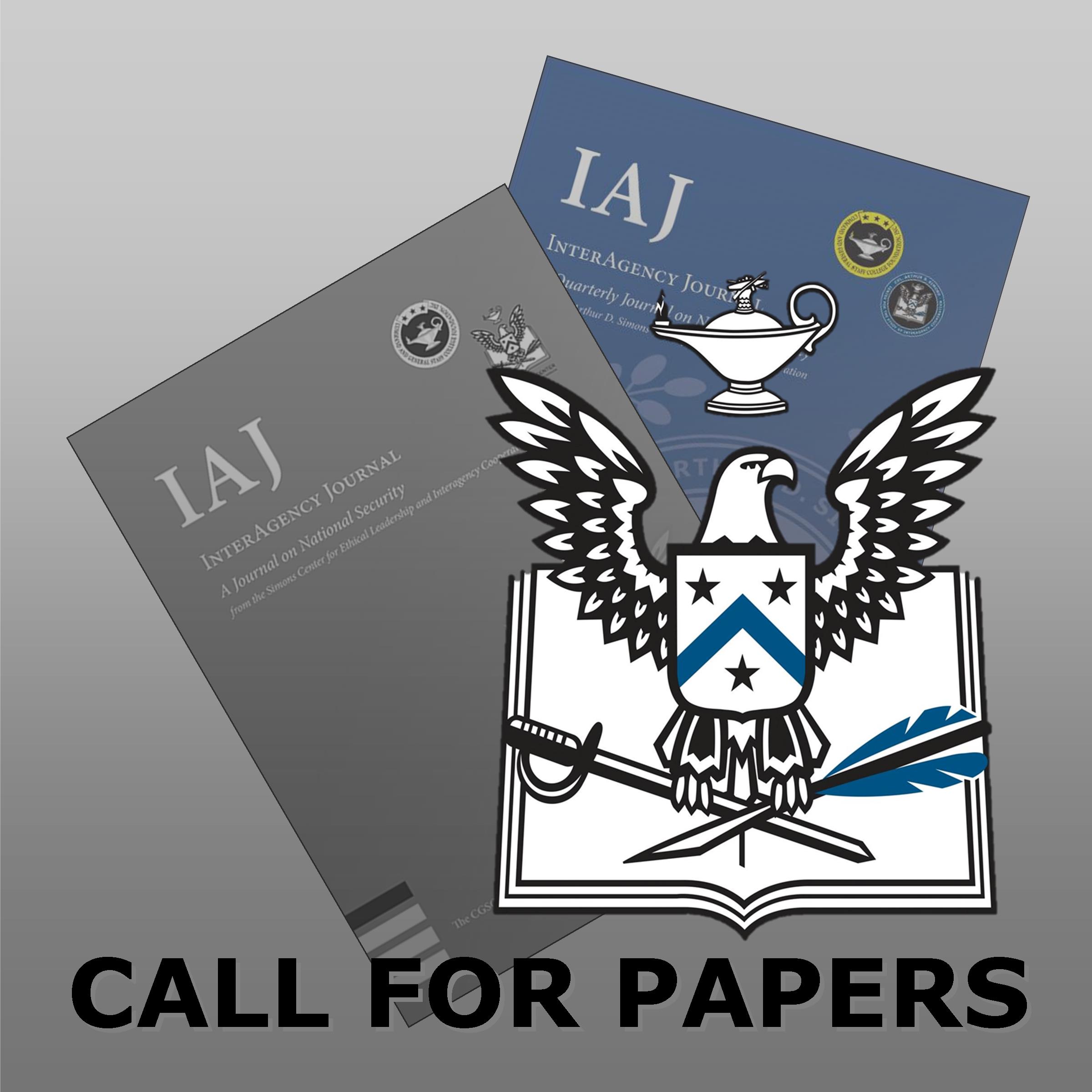Featured Article: The Ethics of Espionage…
Featured article:
The Ethics of Espionage and Covert Action:
The CIA’s Rendition, Detention and Interrogation Program as a Case Study
by John Breen
I have just asked a classroom filled with U.S. Army officers (with a few sister service and civilian counterparts thrown in) to name some of the ethical challenges they believe are associated with spying. They have little trouble helping me fill a large whiteboard with their concerns. By this point in the course I teach at the U.S. Army’s Command and General Staff College entitled “CIA for SoF, MI, and the Warfighter,” the students have read extensively and discussed relevant case studies and many of the more controversial, historical episodes associated with the Central Intelligence Agency’s (CIA) espionage and covert action.
Recent headline issues have included drone strikes, the Senate Select Committee on Intelligence’s (SSCI) report on the CIA’s Rendition, Detention, and Interrogation (RDI) program, the prosecution and jail sentence of mid-level CIA officer Jeffrey Sterling, the fine and probation offered to former CIA Director David Petraeus, and of course, Edward Snowden’s espionage, with attendant revelations of the extent of National Security Agency (NSA) surveillance programs. Most recently, waterboarding became a topic of discussion in the run up to the 2016 Presidential election.
By this point in the course, students understand that the CIA recruits and handles human assets (HUMINT), produces finished intelligence, and conducts Presidentially-directed covert action. Historically, this last activity has been, perhaps, the most problematic. Today, covert action programs require a signed Presidential Finding, with subsequent Congressional notification. This is due in no small part to disputed claims of Presidential plausible deniability, revelations in the press, and Congress reasserting itself, over time, as a co-equal branch of government. Nevertheless, the golden thread of covert action connects the President and the CIA, and it is not likely to be severed any time soon.
Unfortunately, failed or ethically questionable covert action programs have been well documented.
Read the full article
Download the complete edition
IAJ 7-2 (Summer 2016) PDF
IAJ 7-2 (Summer 2016) ePub
John G. Breen, Ph.D., is the Commandant’s Distinguished Chair for National Intelligence Studies at the U.S. Army Command and General Staff College. Dr. Breen earned his Ph.D. from the University of Rochester, and served in numerous assignments for the CIA in Europe, the Middle East, and South Asia.

Posted: October 11, 2016 by Simons Center
READ THE LATEST UPDATES FROM THE SIMONS CENTER
"*" indicates required fields


